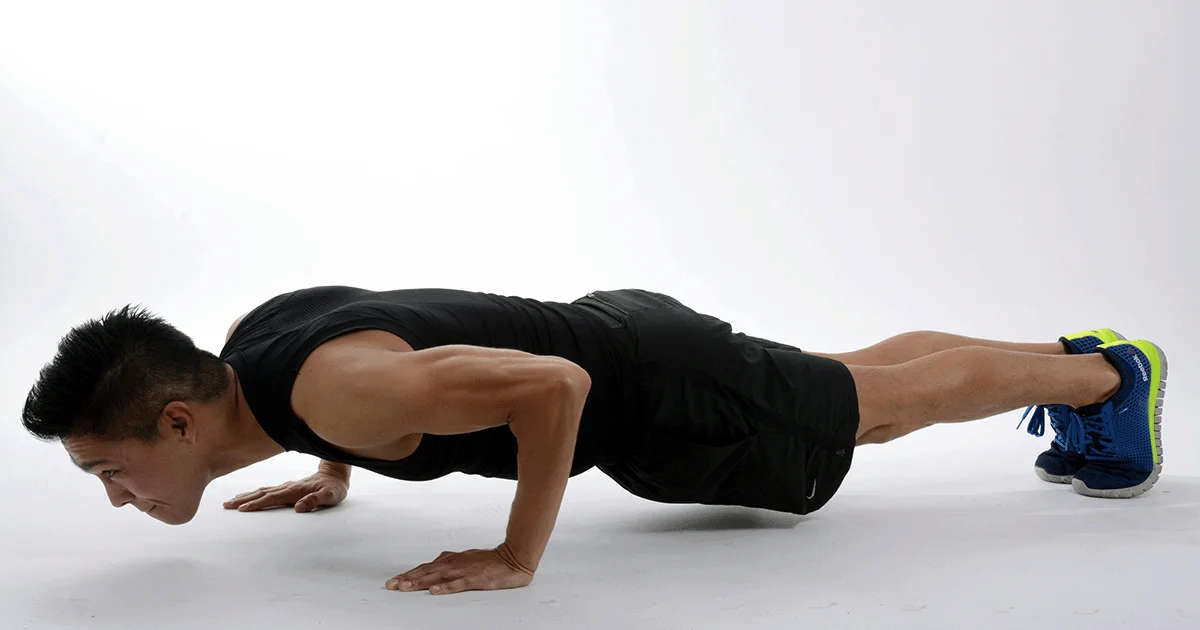Here's what we'll cover
Here's what we'll cover
Here's what we'll cover
There’s a whole wide world of sexual experiences out there—which is exciting but can also be overwhelming for a beginner. It’s hard to know where to start if you’re new to the world of vibrators, for example. You may have already noticed that buying a vibrator can get complicated pretty quickly since there are so many types at a wide range of price points.
If you want to figure out how to use a vibrator, you’re in good company. According to some surveys, 44% of men (during solo and partnered sex) and 46% of women (during solo sex) report using a vibrator at some point in their sex lives (Reece, 2009; Herbenick, 2009).
Keep reading to learn about the different types of vibrators available and tips for safety and pleasure.
What is a vibrator?
A vibrator is a sex toy that uses electric vibrations for stimulation. Some can go inside the vagina or anus. Many are designed to stimulate specific areas on the body, like the nipples, clitoris, penis, or scrotum. Dildos, by contrast, are made to go inside the vagina, anus, or mouth, and they usually don’t vibrate.
There are also several types of vibrators:
Wand vibrators: These vibrators look a bit like microphones and have appeared in TV shows like Sex and the City, being passed off as massagers. They usually offer different vibration patterns and speeds for external stimulation, including clitoral stimulation.
Bullet vibrators: Bullet vibrators are small and compact and provide more point-specific stimulation. They may be easier to travel with or pair with other sex toys.
Rabbit vibrators: These vibrators have one head for internal stimulation and another smaller one to stimulate the clitoris. Sometimes this smaller head has attachments that look like rabbit ears.
Suction vibrators: These sex toys use suction or pulses aimed at the clitoris instead of vibrations. For some people, they feel like oral sex.
Wearable vibrators: There are even subtypes of these vibrators. Some vibrators are worn around the penis to stimulate both partners (often called cock rings). Finger vibrators can be worn on the hand to enhance solo or partner finger play.
How to use a vibrator
What feels good for you is personal, so ultimately, you determine how to use a vibrator based on your preferences. But there are some things to consider, especially when buying your first vibrator, that may help you figure out which type you like and how to use it.
How to use a wand vibrator
Wand vibrators are designed to be used outside the body, on erogenous zones like the nipples, clitoris, and inner thigh.
Once you’ve found areas where you like stimulation, explore the different vibration patterns and speeds available on your vibrator. You can also play with pressure, making the stimulation more or less intense.
How to use a rabbit vibrator
It may be helpful to start slow and have lube on hand (more on that further down) for your first time using a rabbit vibrator. That’s because rabbit vibrators are designed to penetrate the vagina or anus, though you certainly don’t need to use them that way.
How to use a vibrator on a man vs. a woman
People with male sexual organs generally have different erogenous zones than those with female sexual organs, which may mean they like stimulation in different areas of their bodies. But much of this comes down to personal preference, not sex or gender.
Most types of vibrators can be used in both men and women, just in different ways. For instance, penetrative vibrators are suitable for both vaginal stimulation and prostate massage, hitting the female and male “G-spots.” There are also different types of vibrators specifically designed for men. These include vibrating sleeves that go around the penis and vibrating caps that fit over the head of the penis.
You don’t need to buy gender-specialized toys to explore with vibrators—there are plenty of generic options that work for everyone—but they may be worth exploring to find the best form of stimulation for you.
How to use a vibrator with a partner
Vibrators can be a great way to spice things up during partnered sex. You may need to experiment with different vibrators and different sex positions to accommodate a vibrator. Vibrating cock rings are easy to incorporate into penetrative sex with your partner, while internal vibrators can be used as foreplay or g-spot stimulation if that’s difficult to achieve with a partner.
6 tips for getting started with a vibrator
We’ve already outlined how a lot of vibrator use comes down to personal preference, but some tips can help you get the best experience no matter which type you buy.
1. Research which type is right for you
There are many different types of vibrators available. Some models combine features, and some vibrators have more pattern and speed setting options than others. You also need to consider whether a vibrator with a charger or one that uses batteries is more convenient.
2. Read the instructors
The manufacturers have instructions for how to use their vibrators. That doesn’t mean you have to use them exactly as they outline, but it does give you a good idea of where to start. If there are any safety concerns with the vibrator you buy, be sure to follow their instructions for these features. For example, some vibrators are safe to immerse in water, while others aren’t.
3. Check out some reviews
Many vibrators have enthusiastic reviews in which fans explain how they like to use that model. Reading these reviews can give you new ideas for what to try. They can also help you refine which model you think is right for you since they can speak to the toy’s intensity and how loud it is, which can affect whether it’s the right vibrator for you.
4. Make sure it’s charged or has batteries
This is the first step you should take when you get out your vibrator. You can’t experiment with using it if it doesn’t turn on. If you’re researching your vibrator online and the one you want uses batteries, you may want to order the type of batteries it uses at the same time. Rechargeable vibrators come with a charger, which many people prefer.
5. Take your time and explore
If you know where you like stimulation without a vibrator, you may want to start in those places with your new toy. If you’re unsure where to start, you can use the manufacturer’s instructions as a starting point or just start slow and explore. What you like is what you like, and you’ll know it when you find it. There’s no wrong answer here.
6. Have lube on hand
You don’t need to use lube, but it may be helpful to have it on hand. This is especially important if you’re learning how to use a rabbit vibrator since it’s designed for internal stimulation. Lubrication may also make putting on a vibrating sleeve easier for men. Lube will make exploring easier, helping the vibrator glide over areas so you can better control the stimulation intensity.
Benefits of masturbation
You’re in the market for a vibrator, so we probably don’t need to sell you on the fact that masturbation can be fun and satisfying. But there are also health benefits to masturbation. An orgasm, whether through masturbation with or without a vibrator, or other forms of sexual activity, is often an intensely pleasurable experience—so “it feels good” probably tops the list of reasons why people masturbate (Cervilla, 2022).
When you orgasm, your body releases feel-good hormones that can relieve stress, decrease chronic pain (in the short term), and potentially improve sleep. Sex experts have also found that masturbating can enhance sexual desire. Some research has shown that fantasizing about a sexual partner during masturbation may enhance your arousal or anticipation for your next encounter with that partner (Cervilla, 2022).
Why use a vibrator?
Some sexual health experts argue that a vibrator is much more than a sex toy, offering many benefits for women and men. For instance, men who used vibrators to stimulate the penis for stop-start exercises (repeated stimulation with pauses before reaching ejaculation) saw an improvement in their premature ejaculation after six weeks (Ventus, 2019). Data also suggests that men who use vibrators are more likely to perform testicular self-exams (Reece 2009).
Vibrators can also make it easier for women to orgasm. One small study found that about half of the participants could orgasm easier with a vibrator than without one (Marcus, 2011). Using a vibrator has also been linked to higher sexual desire (Reece, 2009; Herbenick, 2009).
How to clean your vibrator
Regularly cleaning your sex toys, including vibrators, is essential for preventing infection. You’re not at risk of spreading sexually transmitted infections (STIs) if you only use your vibrator for solo play, but you should still clean it to avoid spreading germs and bacteria, especially when using a sex toy on different parts of your body. For example, if you put your vibrator inside your anus, you should wash it before putting it in your vagina or mouth.
If possible, have a vibrator for each person, so there isn’t any risk of spreading infection. If that’s not possible, clean it after each person uses it to stop the spread of germs that can cause STIs, urinary tract infections (UTIs), or other conditions.
Know what it’s made of
There are two kinds of materials used to make sex toys: porous and non-porous. These types require different cleaning methods.
Non-porous toys are made from glass, metal, silicone, or ABS hard plastic. These materials don’t let germs or bacteria through. You can clean them with a sex toy cleaner (available in wipes, sprays, or washes) or gentle soap and warm water. Generally, be gentle with your toys when washing them. As a rule of thumb, if it doesn’t go in your vagina or anus, it shouldn’t go on your vibrator (that means no bleach or other aggressive detergents)
Porous toys are made of jelly rubber, elastomer, hard plastic, or acrylic. These materials allow some bacteria and germs through and should be cleaned with gentle soap or detergent and water.
Be careful when using washes with your vibrators since they’re battery-operated or rechargeable, and water can damage them. Sprays and wipes may be easier for upkeep on these toys.
DISCLAIMER
If you have any medical questions or concerns, please talk to your healthcare provider. The articles on Health Guide are underpinned by peer-reviewed research and information drawn from medical societies and governmental agencies. However, they are not a substitute for professional medical advice, diagnosis, or treatment.
References
Biga, L. M., Harwell, A., Hopkins, R., et al. (2019). Physiology of arousal and orgasm. In: S. Dawson (Ed.), Anatomy & Physiology . Essay, OpenStax/Oregon State University. Retrieved from https://open.oregonstate.education/aandp/chapter/27-5-physiology-of-arousal-and-orgasm/
Cervilla, O., Vallejo-Medina, P., Gómez-Berrocal, C., et al. (2022). Validation of the orgasm rating scale in the context of masturbation. Psicothema, 34 (1), 151–159. doi:10.7334/psicothema2021.223. Retrieved from https://www.researchgate.net/profile/Pablo-Vallejo-Medina/publication/357974763_Validation_of_the_Orgasm_Rating_Scale_in_the_Context_of_Masturbation/links/61eac17fc5e3103375ae561e/Validation-of-the-Orgasm-Rating-Scale-in-the-Context-of-Masturbation.pdf
Herbenick, D., Reece, M., Sanders, S. A., et al. (2009). Women's vibrator use in sexual partnerships: Results from a Nationally Representative Survey in the United States. Journal of Sex & Marital Therapy , 36 (1), 49–65. doi:10.1080/00926230903375677. Retrieved from https://www.tandfonline.com/doi/abs/10.1080/00926230903375677
Marcus, B. S. (2011). Changes in a woman's sexual experience and expectations following the introduction of electric vibrator assistance. The Journal of Sexual Medicine, 8 (12), 3398–3406. doi:10.1111/j.1743-6109.2010.02132.x. Retrieved from https://pubmed.ncbi.nlm.nih.gov/21205230/
Rackal, Y. (2021). Why doesn’t sleep advice talk about sex? Canadian Medical Association Journal , 193 (11). doi:10.1503/cmaj.1095926. Retrieved from https://www.cmaj.ca/content/193/11/E384.short
Reece, M., Herbenick, D., Sanders, S. A., et al. (2009). Prevalence and characteristics of vibrator use by men in the United States. The Journal of Sexual Medicine , 6 (7), 1867–1874. doi:10.1111/j.1743-6109.2009.01290.x. Retrieved from https://www.sciencedirect.com/science/article/abs/pii/S1743609515325753
Ventus, D., Gunst, A., Arver, S., et al. (2019). Vibrator-assisted start–stop exercises improve premature ejaculation symptoms: A randomized controlled trial. Archives of Sexual Behavior , 49 (5), 1559–1573. doi:10.1007/s10508-019-01520-0. Retrieved from https://link.springer.com/article/10.1007/s10508-019-01520-0










